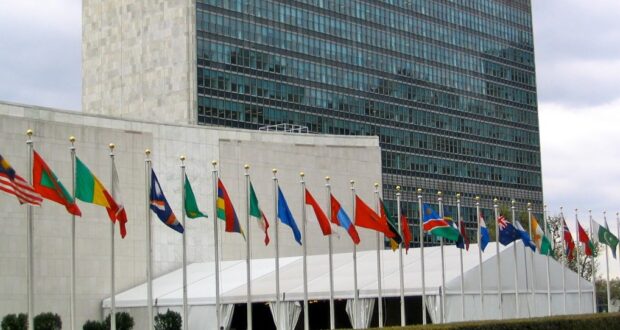21 March 2021
By Jessica Honan – Research Assistant
Article 33 of the UN Charter explicitly lists some mechanisms available to States for the peaceful resolution of their international disputes, those being negotiation, enquiry, mediation, conciliation, arbitration, judicial settlement, and resort to regional agencies or arrangements. In the International Court of Justice (ICJ) North Sea Continental Shelf case, the Court deliberated on an ongoing dispute between Germany and Denmark and Germany and Netherlands regarding the delineation of the North Sea Continental Shelf. In its decision, the Court considered the value of negotiation for resolving the dispute, mentioning that negotiation had a ‘fundamental character’. This comment recognises negotiations’ effectiveness as a dynamic, flexible mechanism that allows disputing States to exchange information, present the merits of their case to each other, and attempt to settle the dispute before resorting to formal legal means such as the ICJ. Negotiation in international law can be both formal and informal discussion intended to resolve an international dispute.
As a mechanism, it is particularly adapted to resolving international disputes as its more dynamic, flexible character when compared to the other mechanisms allows for disputing States to exchange information, present the merits of their case to each other, and attempt to settle the dispute through non-adjudicative means. Yet despite this merit, negotiation is not a faultless tool and faces challenges in many situations.
Negotiation’s dynamic nature and general applicability means it is adapted to resolving a large portion of international disputes. This is evidenced by the fact negotiation is the most commonly employed tool for settling international disputes. Unlike more rigid forms of dispute resolution, such as judicial arbitration through legal proceedings before the ICJ, forms of negotiation occur daily in non-formal settings. This includes through email and casual correspondences in embassies or intergovernmental organisations. Frequent and unscrutinised contact allows States to build up trust, familiarity, and habits of communication, which increases the probability States will be able to effectively communicate to bring about a resolution in future disputes. Such flexibility also allows for creativity in brainstorming possible solutions and outcomes that could satisfy States’ grievances.
The fact negotiation can be employed so frequently and informally demonstrates its general applicability, which is another strength of the mechanism. The ICJ in North Sea Continental Shelf articulated negotiations’ this lex generalis nature by indicating that it is an IDR mechanism applicable to a broad range of disputes, including to settle disputes pertaining to maritime boundaries. Negotiation can be employed by States in most situations – unlike other dispute resolution mechanisms such as arbitration and judicial settlement, there are no jurisdiction or admissibility requirements constraining the applicability of the mechanism to certain kinds of disputes. The possibility for negotiation to be employed in a broad range of disputes is indeed a benefit of this mechanism.
However, negotiation only tends to be successful in certain circumstances. Foremost, States must generally have an ongoing, amicable relationship for negotiation to succeed. Parties to a dispute are less trusting of States with which they have had rivalries, or those States with which they have differing political ideology or cultural norms. In both situations, States are more suspicious of the other States’ motives, making them distrustful and increasing the probability of misconceptions, misinterpretation of fact or the holding back of crucial information. This ineffective communication is detrimental to negotiations, as this form of dispute resolution mechanism is centralised on the honest expression of preferences in order to clarify boundaries to the dispute and identify common interests.
Similarly, negotiation only tends to be successful when the dispute is not factually or legally complex or inflammatory. Specifically, the perfect conditions for negotiation to succeed are when the dispute in question is of a low intensity, does not involve third parties, and involves tangible outcomes and comparatively straightforward issues. Similar to situations where States’ relationships are hostile to one another, if the issue of the conflict is too complex or sensitive, trust issues arise and States do not perceive cooperation to be possible. This creates an environment wholly unconducive to recognising concessions, accepting compromises or empathising with the other sides’ perspective – all conditions necessary for successful negotiation. Likewise, in situations where the conflict is especially high-stakes, States often either completely break off, or severely sever diplomatic relations with each other. Again, negotiation cannot function in these situations. However, negotiation can meaningfully contribute to the resolution of disputes that arise naturally as a by-product of diplomatic relations – that is, in situations where the issue allows for a cooperative solution.
Moreover, the power dynamic between parties must be somewhat comparable for negotiation to be a successful mechanism. In situations where one State is significantly more powerful than the other, it is unlikely the stronger State will be willing to make the concessions or compromises necessary for a negotiation to successfully resolve a conflict. Jackson’s quantitative research revealed that negotiation does ‘suffer from depressed success rates when power differences are extremely high’. For example, whilst negotiations between Russia and Ukraine appeared to have resulted in a ceasefire in 2019, Russia continues to exercise control over occupied territories through soft power techniques and traditional elements of military aggression including cyber dimensions. Rather than resolving the territorial dispute as between Russia and Ukraine, negotiation failed to effectively resolve the grievances and interests of both States to bring about an absolute conclusion to the dispute. This is ultimately because Russia does not perceive itself to be in a vulnerable enough position to make any concessions to Ukraine, a less-powerful State.
By contrast, in situations where there is a very slight power imbalance, States are most likely to successfully negotiate a resolution to their dispute. Mutual recognition of the power dynamic by both States clarifies which State is expected to make the most compromises, which correspondingly makes it clearer what a resolution would look like. However, the comparable power status ensures that both States still feel like they can equally contribute to negotiations and that their concerns are not belittled or illegitimated by the opponent’s status. Hence, in situations where there is a significant power imbalance, it is unlikely States will effectively negotiate.
The expansive nature of international law and the fact it increasingly covers all aspects of State-to-State interactions means that negotiation can operate to resolve purely legal disputes. However, another of its faults is that it is inherently political, so is thus better conditioned to effectively resolving political rather than legal disputes. The Principles and Guidelines for International Negotiations articulate that negotiations are ‘guided by the relevant principles and rules of international law’. However, this does not necessarily make negotiations appropriately adapted to resolving matters of international law. In situations where States are debating an issue of a purely or even mostly legal nature, negotiation does little to settle the dispute. In contrast to political disputes, which are subjective, and each State will perceive wins and gains relative to other States, legal disputes require a more explicit articulation of law.
Unlike mechanisms such as judicial settlement or arbitration, in which a Court or competent judicial authority should unequivocally clarify the relevant law, negotiation does not involve a third party with legal clout bringing certainty to the legal issue. This is exemplified by the dispute in the North Sea Continental Shelf cases, which was legal in nature. In this situation, it would have been impractical and likely inaccurate if Germany and Denmark, or Germany and the Netherlands were to try and negotiate an agreement on the relevant law without a competent third party articulating the law.
These factors speak to the fact that negotiation, whilst a useful mechanism for resolving international disputes, is not without its faults. The dynamic, adaptable nature of negotiations is conducive for the sharing of information between States and in many situations, allows for the peaceful settlement of disputes, thus fulfilling its role under Article 33 of the UN Charter.
Image: Martin Swart/CC BY-SA 2.0)
 Human Security Centre Human Rights and International Security Research
Human Security Centre Human Rights and International Security Research




